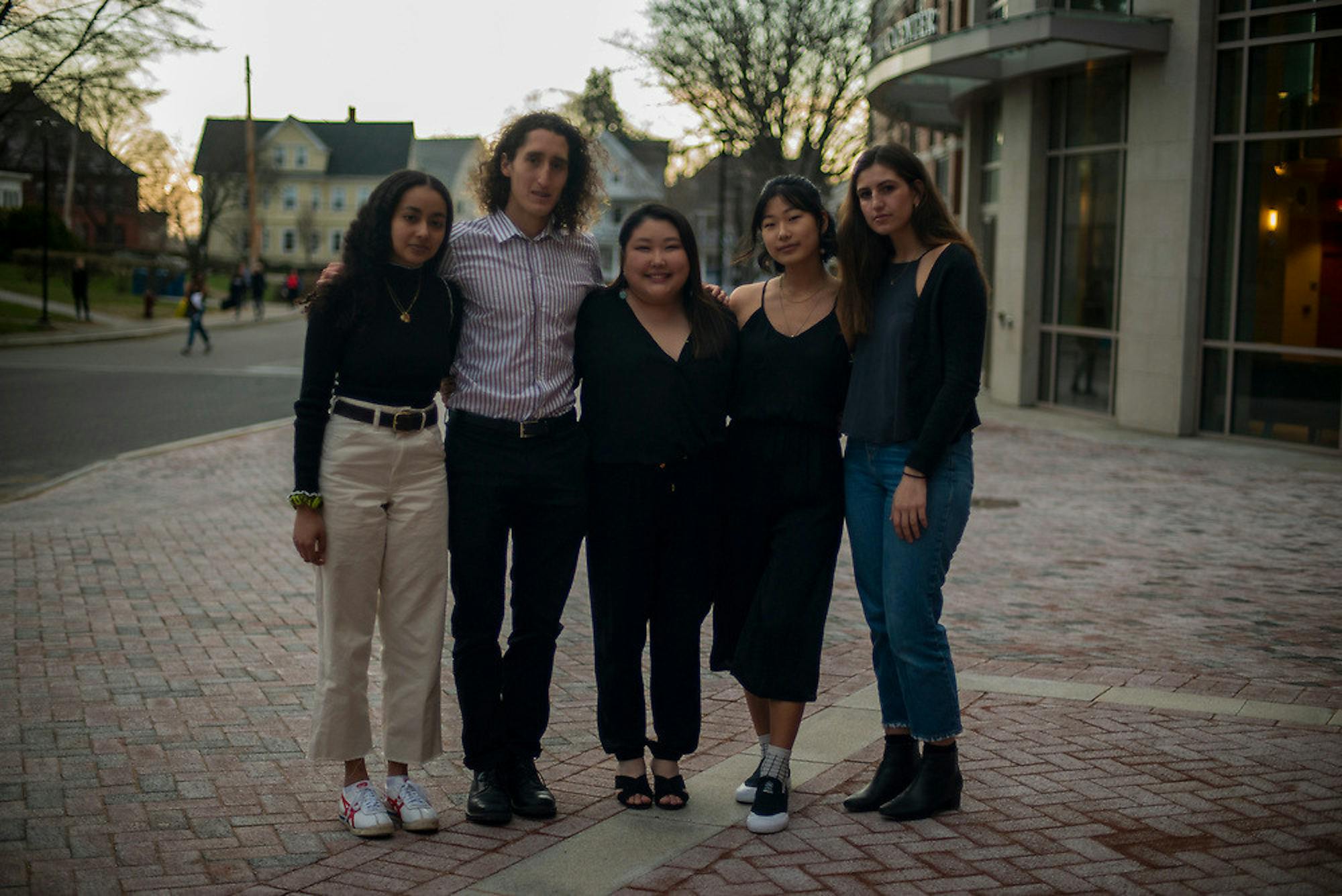Content warning: This article discusses sexual violence.
The sixth annual installment of It Happens Here (IHH), an event that showcases narratives by survivors of sexual violence and assault, took place last night. Student speakers read 24 narratives throughout the program, which lasted for an hour and a half.
The event was planned by Action for Sexual Assault Prevention (ASAP), a group of students working to bring awareness to sexual violence and assault on the Tufts campus in effort to create a culture of consent.
Narratives took multiple forms, ranging from accounts of what happened to direct letters to perpetrators to poetry.
The opening statements, given by ASAP executive board member Han Lee, expressed the event’s aims.
“Our hope is that we will continue to center the voices of those who are best suited to discuss this problem: survivors. It is more important now than ever that we respect and support these brave individuals," Lee, a junior, said.
The event came together through the work of ASAP’s five-person executive board, made up by Lee, co-head of education and outreach; sophomore Benji Cole, head of Action for Sexual Assault Prevention by Tufts Men (ASAP™); junior Jennifer Kim, head of survivor spaces; and sophomores Paula Gil-Ordoñez Gomez and Malaika Gabra, co-heads of events.
IHH’s overarching goal was to give validation and voice to the stories and feelings of survivors of sexual abuse and assault on campus, according to Kim.
“It’s recognizing that it happens here and that a lot of people struggle with it day to day but don’t really get resources or recognition for it,” Kim said in an interview with the Daily. “And secondarily, I think it is also a way for survivors to kind of just tell their stories and get a sense of validation for what they go through and ... [the] feeling like their story is worth sharing.”
Narratives were read either by the survivors themselves or by volunteer readers. Submissions could be submitted anonymously or openly with the option of survivors reading their narratives themselves or having a volunteer read it for them.
For those who chose to remain anonymous, readers were picked purposefully, according to Kim.
“We try to pair them up based on gender identity, sexual identity, other things like that — things that are important to the person writing the narrative to make sure that when it’s shared on stage, it has some authenticity," Kim said.
Some narratives depicted detailed scenes of survivors’ experiences, while others were formulated as social critiques. One narrative was a reflection upon that survivor’s narrative which was read at last year’s IHH event.
ASAP provided support for survivors by reaching out and making sure they were comfortable with the way their stories were being told, according to Kim. Writing workshops were also held to aid survivors in telling their stories, according to Kim.
Representatives from outside organizations, such as Jane Doe Inc. and Boston Area Rape Crisis Center, attended the event to provide solace and support for the survivors and anyone affected by their stories. Alexandra Donovan, director of the Center for Awareness, Resources and Education, and Walker Bristol, the Humanist chaplain, were also available to talk with students. The Women’s Center was open as a space for individuals to meet.
The event first began at Tufts in 2014, according to the event’s program.
In past years, fraternities and sports teams were required to attend the event, according to Kim. Now, it is more loosely required due to personal reasons, Jackson McCoy, a former president of ATO of Massachusetts, explained.
“It’s communicated heavily among fraternity members, but to a point we limit how much it’s required vs encouraged because some of us are survivors and don’t go for our own reasons,” McCoy, a senior, told the Daily in an electronic message.
ASAP has been planning IHH over the past few months.
“It really is a labor of love and logistics,” Kim said. “We have the portal for submissions open until the beginning of April, and from that point on, it’s go time. We have to find volunteers, we have to pair up the narratives, people drop out, people are looking for specific readers, things like that. So really the week and a half leading up to IHH is when it all kind of goes down.”
Kim detailed why she believes IHH is important to the Tufts community.
“I think for a lot of people in those communities, it is an event that is especially impactful because sometimes that kind of education and awareness is not just circulated,” Kim said. “I think that because It Happens Here is such a public event, it is something that a lot of people come to and leave feeling like they have a better understanding of at least some experiences of survivors on this campus.”
CORRECTION: A previous version of this story included a line that presumptively assigned male and female genders to the speakers at IHH. This line has been removed. The Daily deeply regrets this error.
Sixth It Happens Here features 24 narratives of survival

04/11/2019 – Medford/Somerville, MA –Members of Action for Sexual Assault Prevention (ASAP) pose for a portrait in front of Aidekman Arts Center on April 11.





